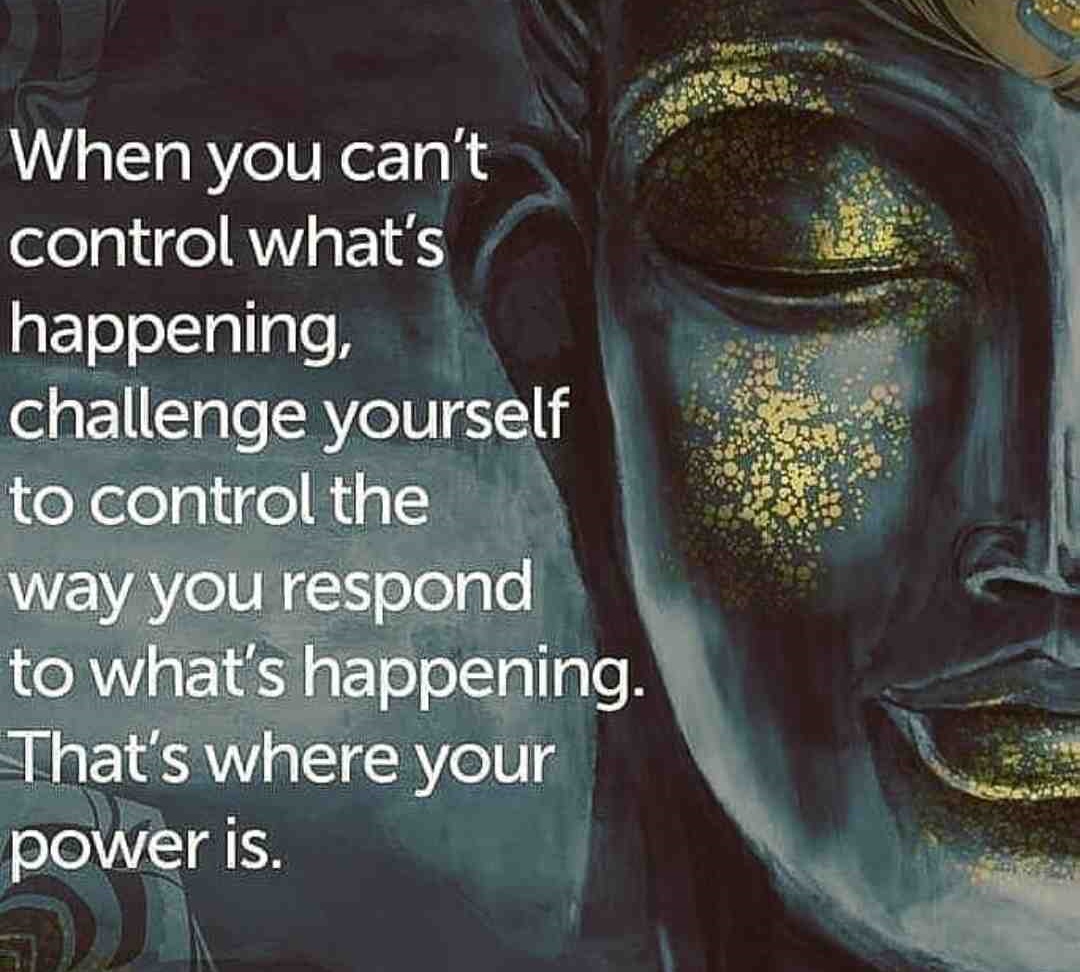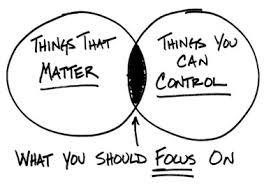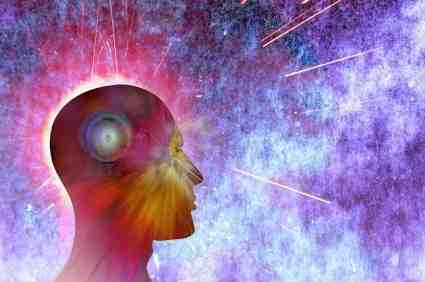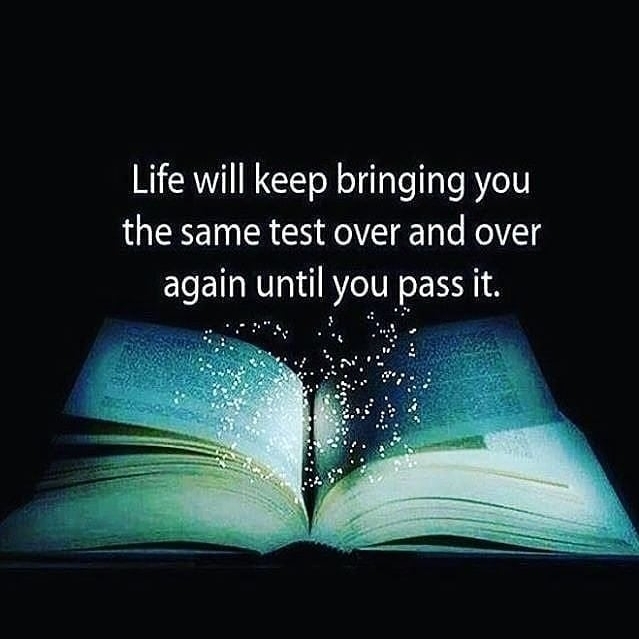How Things Really Are - The Inbuilt Design Flaws
Chaos, Disorder And Decay Is The Natural Order Of Things

Nobody Has The Perfect Life.
Nobody has the perfect life. This is how things really are. This is the nature of things.
We all struggle and strive to attain health, wealth and personal happiness. Yet these three big areas: our health, our wealth and our relationships are where we all get hung out to dry – sooner or later.
Charmed lives
I say "sooner or later" because there have been many people I have known and whose lives I have been able to observe, from within the context of normal social interaction, and who really did seem to "have it all".
In some cases I went through periods of feeling quite envious of these folk who led – or appeared to lead – such charmed lives.
Yet over a period of time – usually five to ten years but sometimes quite a lot longer - what I have noticed is that even those seemingly special ones who lead such apparent charmed lives were in fact nursing secret and private difficulties and unexpected tragedies – fractured family relationships, deaths, serious illness, sudden illness, business failure, redundancy, money problems etc.
I too have been severely tested in some of these areas.
It is as though there is an inbuilt design flaw that ensures that we all suffer at some point - one way or another.
Often, in these situations, we find ourselves going through a transition as we try to deal with the personal impacts of imposed change.
Here are some empowering resources for when you feel lost and stuck in a period of transition.
The Buddhist perspective
In the Buddhist perspective, "seeing things as they are" [Sanskrit yatha-bhutam darshanam] basically means to see that all human experience is stamped by three characteristics:
- Impermanence (anitya)
- No-self (anatman)
- Suffering (duhkha)
This is how things really are.
As we become aware of these characteristics our point of focus shifts away from the content of our experiences and toward their structure.
To see how things really are is to become conscious of our unconscious assumptions about ourselves and our world, and to bring them into the light of full consciousness, and to notice how, on close inspection, these assumptions often contradict our actual experience.
Teaching Cats To Bark
Wanting reality to be different than it is, is like trying to teach a cat to bark.
You suffer every time you believe a thought that argues with what is.
When your mind is perfectly clear, what is, is what you want.
If you want reality to be different than it is, you might as well try to teach a cat to bark.
You can try and try, and in the end the cat will look up at you and say, “Meow.”
Wanting reality to be different than it is - is hopeless.
And yet, if you pay attention, you’ll notice that you think thoughts like this dozens of times a day:
- “People should be kinder.”
- “Children should be well-behaved.”
- “My husband (or wife) should agree with me.”
- “I should be thinner (or prettier or more successful).”
These thoughts are ways of wanting reality to be different than it is.
If you think that this sounds depressing, you’re right.
Much of the stress that you feel is caused by arguing with what is.
Focus On Things You Can Control, Ignore The Rest
The Stoics referred to this as "the dichotomy of control".
Modern psychologists refer to an “internal locus of control” and an “external locus of control.”
What this basically means is that if you have internal locus of control you will most likely believe that you are responsible for most of what happens in your life.
The consequence of this is that your response to events determines the outcomes you experience.
You focus on what you could do better or what you can influence in pursuing your goals.
Whereas, if you have an external locus of control you will tend to blame others
for your problems, find excuses to not pursue your goals, and
generally live a frustrated and unfulfilled life.
Evidence show that if you have an internal
locus of control there is greater likelihood of you being happier, less anxious, able to make better
decisions and accomplish more of your goals.
This idea has been
around for millennia in various formats. In modern times it is best
known as Reinhold Neibuhr’s “Prayer of Serenity”:
"God, grant
me the serenity to accept the things I cannot change, courage to change
the things I can, and wisdom to know the difference."
The Leverage Of Energy
What I have learned the hard way over
many, many years, and without doubt or reservation, is that we need to
use the leverage of energy - the same energy that creates everything in
the universe – The Energy Of Life.
You may have noticed that some people seem to lead a “charmed life” or have “the Midas touch”. It can appear as though they have an advantage over everyone else.
At
the other end of the spectrum there are so many people who strive so
hard and yet achieve so little for all their effort. This may not seem
fair but in all of my lived and observed experience of life that really
does seem to be how The Energy Of Life works.
That doesn't seem fair does it? But all the evidence seems to suggest to me that's the way the universe works.
We
are culturally conditioned and brought up to believe that there is “no
gain without pain” and whilst there is a truth in that, it is not the
whole picture.
What matters is the energetic state applied to all that effort.
The Transformative Power Of Acceptance
Suffering is an integral part of the human condition.
There are times when there is nothing more we can do to alleviate it.
In these circumstances we have two powerful options: we can RESIST it OR we can ACCEPT it.
The power of acceptance is the freedom that it gives you.
Freedom from the tyranny of your thoughts and emotional responses to the events and circumstances of your life.
The transforming power of acceptance is that it:
- Unfuses your thinking mind from your observing mind.
- Stops you identifying with the torrent of words and thoughts it is constantly spewing out.
- Unhooks your dependence on a change in outer circumstances before you can make an inner change.
- Releases your "stuck in waiting" and always looking forward or backwards.
- Releases your resistance to what is happening in your life.
- Brings you peace and calm.
- Centres you in the present moment, now.
Acceptance is the foundation stone upon which all personal change is built.
Here is a simple proven practice for practising the power of acceptance.
Next Article: I Did It MY Way
Return "How Things Really Are" to: How To Change Your Life
LATEST ARTICLES
Does Prayer Work? The Psychology of Prayer, Meditation and Outcomes
 Reality Is A Complex System Of Countless Interactions - Including Yours. So does prayer work? The problem is that the question itself is usually framed in a way that guarantees confusion. We tend to a…
Reality Is A Complex System Of Countless Interactions - Including Yours. So does prayer work? The problem is that the question itself is usually framed in a way that guarantees confusion. We tend to a…Living in Survival Mode Without Surrendering Mental Authority
Living in Survival Mode Without Surrendering Mental Authority
 Clear Thinking When You’re Just Trying to Stay Afloat. Many people today are overwhelmed because they are living in survival mode - not temporarily, but as a persistent condition of life. For many, th…
Clear Thinking When You’re Just Trying to Stay Afloat. Many people today are overwhelmed because they are living in survival mode - not temporarily, but as a persistent condition of life. For many, th…Manifestation Without Magic: A Practical Model
 Manifestation without magic is not a softer or more intellectual version of popular manifestation culture. It is a different model altogether. Popular manifestation teachings tend to frame reality as…
Manifestation without magic is not a softer or more intellectual version of popular manifestation culture. It is a different model altogether. Popular manifestation teachings tend to frame reality as…Staying Committed When You Can't See Progress - The Psychology of Grit
 Uncertainty Is Not The Absence Of Progress, Only The Absence Of Reassurance. One of the most destabilising experiences in modern life is not failure, but uncertainty and staying committed when you can…
Uncertainty Is Not The Absence Of Progress, Only The Absence Of Reassurance. One of the most destabilising experiences in modern life is not failure, but uncertainty and staying committed when you can…The Battle For Your Mind - How To Win Inner Freedom In A Digital Age Of Distraction
 From External Events to Inner Events. We often think of “events” as things that happen out there: the traffic jam, the rude comment, the delayed email reply. But what truly shapes our experience is wh…
From External Events to Inner Events. We often think of “events” as things that happen out there: the traffic jam, the rude comment, the delayed email reply. But what truly shapes our experience is wh…How to See Your Thoughts Without Becoming the Story
 A Practical Guide to Thought-Awareness. You can spend your life inside the stories of your mind without ever learning how to see your thoughts clearly and objectively. Most of the stuff we tell oursel…
A Practical Guide to Thought-Awareness. You can spend your life inside the stories of your mind without ever learning how to see your thoughts clearly and objectively. Most of the stuff we tell oursel…The Collison Decision Matrix - A Simple Framework for Better Choices
 The Collison Decision Matrix Is A Practical Everyday Thinking Tool. Most of us spend a surprising amount of time worrying about decisions. From small ones such as what to wear, what to eat, what to te…
The Collison Decision Matrix Is A Practical Everyday Thinking Tool. Most of us spend a surprising amount of time worrying about decisions. From small ones such as what to wear, what to eat, what to te…The Power Of Asking The Right Question
 The Power Of Asking The Right Question Lies In The Quest For Insight. To experience the power of asking the right question you must develop the practice of asking questions. The best way to improve th…
The Power Of Asking The Right Question Lies In The Quest For Insight. To experience the power of asking the right question you must develop the practice of asking questions. The best way to improve th…Site Pathways
 Here is a site pathway to help new readers of Zen-Tools navigate the material on this site. Each pathway is based around one of the many key themes covered on this site and contain a 150 word introduc…
Here is a site pathway to help new readers of Zen-Tools navigate the material on this site. Each pathway is based around one of the many key themes covered on this site and contain a 150 word introduc…How To Live With Contradiction - Beyond Thought Let Stillness Speak
 A major impact on so many peoples' lives is the situational contradiction of unfilled realistic expectations. So where does all this leave us? Well here we are, with mental equipment that is more lim…
A major impact on so many peoples' lives is the situational contradiction of unfilled realistic expectations. So where does all this leave us? Well here we are, with mental equipment that is more lim…How To Trust The Process Of Mindfulness - Right Now
 In mindfulness, the process isn’t some distant goal — it's what is happening right now. When we talk about how to trust the process of mindfulness the credibility of the process is heavily dependent…
In mindfulness, the process isn’t some distant goal — it's what is happening right now. When we talk about how to trust the process of mindfulness the credibility of the process is heavily dependent…



